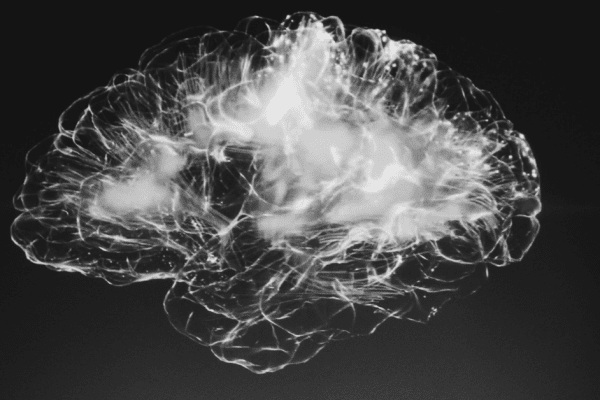Research indicates that anorexia nervosa, bulimia and other eating disorders may be partially caused by differing balances of chemicals within the brain.
Investigations suggest that chemical imbalances within the brain can have a significant effect on the behaviour, recovery and reactions of those with eating disorders.
Anorexia, bulimia, binge eating disorder and disordered eating are serious psychiatric disorders with an alarming fatality rate and lifelong physical and mental impacts.
Eating disorders, along with substance misuse, have the highest mortality rate of all mental health disorders, with anorexia in Australia having a mortality rate of 20%.
There are around one million Australians suffering from an eating disorder at any one time and eating disorders are on the rise around the world.
An understanding of the noteworthy differences in brain chemicals can assist with quality treatment and recovery from eating disorders.
Improving our knowledge of brain chemistry is important for understanding why some people develop eating disorders, while others in the same family, environment or socio-economic group do not.
Specific neurobiological differences have been identified by researchers in the brains of people with anorexia, bulimia and other eating disorders. These chemical brain differences affect how people eat, along with mood, personality, anxiety and decision-making.
Related: Myths about eating disorders
Which chemicals in the brain can cause eating disorders?
Studies of eating disorders have shown specific neurobiological variances in people with anorexia, bulimia, selective eating disorder and binge eating disorders.
These variances occur in the neurons, which use chemicals called neurotransmitters to either stimulate or inhibit other neurons.

The two main neurotransmitters that can affect how people think, behave and react are the same two neurotransmitters that can impact our risk of developing an eating disorder.
Serotonin
Serotonin, also known as 5-hydroxytryptophan, is a chemical that is produced by nerve cells. Synthesis of serotonin requires a range of nutrients and may be impaired when nutrition is poor and/or as a result of genetic variants in the enzymes required. Serotonin is mostly found in the digestive system, although it is also found in the central nervous system.
Serotonin maintains and steadies our mood, feelings of wellbeing, and happiness, and impacts on the whole body. It enables brain cells and other nervous system cells to communicate with each other. Serotonin also helps with sleeping, eating, and digestion.

Geneticists have found that people with anorexia are more likely to carry a variant of 5HT2A receptor, which is thought to increase the amount of serotonin in the non-starved state.
Researchers have found that anorexics have an overproduction of serotonin, which can cause a continual state of acute stress and anxiety.
In an article published in 2009 in Nature Neuroscience, leading eating disorder researcher Walter Kaye hypothesises that starvation makes people with anorexia feel better by decreasing the serotonin in their brains.
As people with anorexia continue to extreme calorie control, the brain increases the number of serotonin receptors to help increase efficiency of the final serotonin. These people continue to feel the need to starve themselves, because when they start to eat again their serotonin levels increase or spike, which causes extreme anxiety, emotional chaos and decreased mental wellness.
Dr Leanne Barron, general practitioner with a special interest in eating disorders at The Banyans Health and Wellness, notes in other patients, such as those with bulimia and binge eating disorder, low levels of serotonin may be a factor in cravings for carbohydrates. Carbohydrates are required for tryptophan to cross the blood brain barrier to be converted to serotonin in the brain.
Dr Barron believes the multiple individual, underlying factors involved explain why recovery from eating disorders is such a complex process, requiring input from a team of practitioners.
Dopamine
Dopamine is produced in several areas of the brain and plays a role in how we feel pleasure. Functions of dopamine include pleasurable reward, behaviour and cognition, sleep, mood and learning.

For those dealing with anorexia, a leading hypothesis is that the disorder is associated with an over-production of dopamine, leading to anxiety, harm avoidance, hyperactivity and the ability to go without pleasurable things like food.
This may relate to overproduction of dopamine, or to reduced conversion of dopamine into noradrenaline. The enzyme required for this conversion may be inhibited by compounds produced by gut bacteria in a disturbed microbiome.
“Dopamine is one the brain’s most complex neurotransmitters. One of the differences between anorexia and bulimia may be the level of dopamine,” says Dr Barron.
Cortisol
Cortisol is a naturally produced steroid hormone that helps regulate a range of processes throughout the body, including stress response, the immune response, and metabolism. Cortisol can be chronically elevated due to starvation in people with eating disorders, when the body is preparing to regulate itself against threat and stress. This increased cortisol results in decreased appetite, as it inhibits the release of appetite stimulant.

In chronic disease, the body may struggle to produce sufficient cortisol, resulting in a low energy, under-functioning state.
“During recovery and weight gain, cortisol levels normalise and stress responses are returned to pre-starvation rates,” says Dr Barron. “This levelling of cortisol improves stress reactions, immunity, and metabolism and therefore, helps speed recovery, overall wellbeing, and decreases the effects of anorexia and other eating disorders.”
What can you do to help someone struggling with an eating disorder?
Dr Barron advises anyone with concerns to address them in a non-judgmental and compassionate way.
Related: Signs and symptoms that your child might have an eating disorder
“As an eating disorder is a complex psychological and physical illness, a comprehensive biopsychosocial approach is imperative in treating the condition,” says Dr Barron, who approaches all her eating disorder patients from this treating perspective.
The extended eating disorder treatment team at The Banyans Health and Wellness may comprise other allied health specialists, including psychologists, counsellors, and nutritionists.
It is important to note that acute eating disorder cases may require hospitalisation and physical stabilisation prior to a stay at The Banyans Residence.
If you or someone you love would benefit from a program at The Banyans Health and Wellness Residence, please call +61 1300 BANYAN (1300 226 926) for a non-obligatory, confidential discussion or fill in our enquiry form below.





